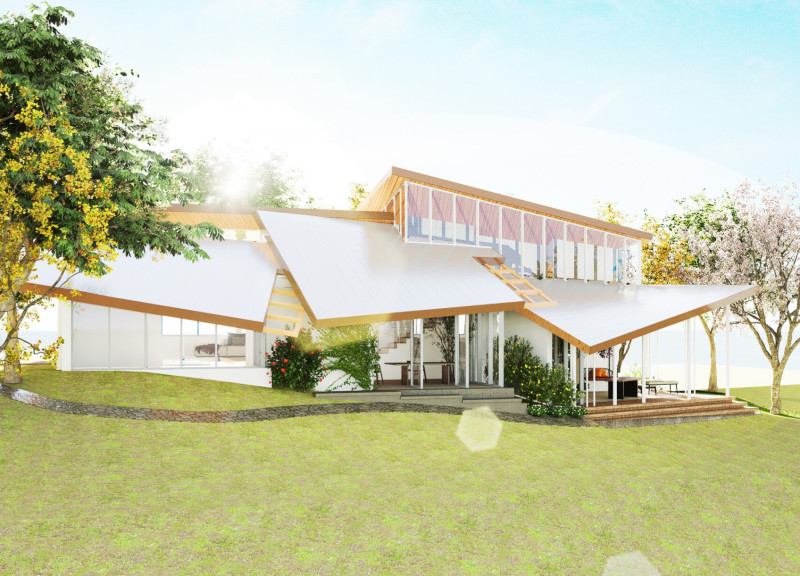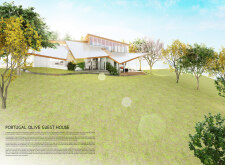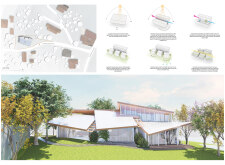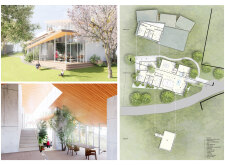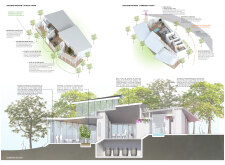5 key facts about this project
### Project Overview
The Portugal Olive Guest House is located in the scenic landscapes of Portugal, designed to engage with the surrounding environment while offering contemporary living spaces. This guest house emphasizes a connection to nature, integrating aesthetic appeal with functional performance through innovative design elements and material selections. The orientation of the structure along an east-west axis maximizes natural light while ensuring proper shading during peak sunlight hours, fostering a naturally lit and ventilated interior environment.
### Spatial Arrangement and User Experience
The architectural layout emphasizes a balance between communal spaces and private retreats. Public areas, including a living room and communal dining space, are designed to facilitate social interaction among guests, with flexible configurations that adapt to different activities. In contrast, private spaces like bedrooms and meditation areas are strategically oriented to enhance privacy while providing scenic views of the surrounding landscape. Special features, such as a glass-enclosed olive oil tasting room, create immersive experiences that further connect guests with the natural surroundings.
### Materiality and Sustainability
The use of materials in the guest house combines both durability and warmth. Concrete serves as a robust structural element, supporting expansive glass facades that offer transparency and visual continuity between indoors and outdoors. Timber accents evoke traditional Portuguese architecture, contributing to a welcoming atmosphere. Large glass panels optimize daylighting, while metal components provide low-maintenance solutions that contrast with the warmth of wood. Additionally, the design prioritizes sustainability, incorporating passive solar techniques and green roofs to enhance energy efficiency and promote biodiversity within the landscape. Water features are integrated into the design, serving both aesthetic and functional roles, particularly in regulating the microclimate during warmer months.


